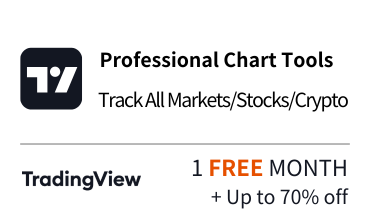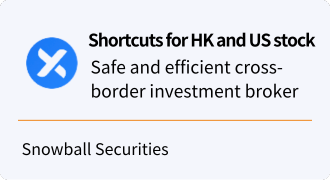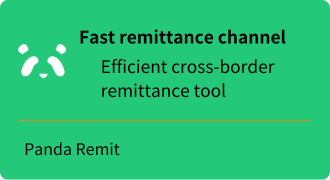Hong Kong Stock Market Rules: Essential Guide for New Investors
[DISCLAIMER] This article is for educational and informational purposes only and does not constitute investment advice. Readers should consult with qualified financial professionals before making any investment decisions.
As a veteran quantitative trading expert and financial self-publisher, I often receive questions from readers about the trading rules of Hong Kong stocks. Today, let's dive into the core trading rules of the Hong Kong stock market. Whether you are new to the investment world or an intermediate investor looking to improve your trading skills, understanding these rules will help you capitalize on the ever-changing Hong Kong stock market.
Ⅰ. Trading unit: the “smallest unit” of a stock
In the Hong Kong stock market, each stock has a specific trading unit, commonly known as a “lot”. Understanding the trading unit is crucial to formulating an investment strategy.
Criteria for defining trading unit
The HKEx takes the following factors into consideration when setting the trading unit:
- stock price
- market liquidity
- investor accessibility
- market practice and historical factors
Specific criteria for trading units
HKEx has set the following criteria based on stock price ranges:
| Stock price range (HK$) | Recommended number of shares per board lot |
| 0.01 to 0.25 | 20,000 |
| 0.25 above to 0.50 | 10,000 |
| 0.50 above to 10.00 | 2,000 |
| 10.00 above to 20.00 | 1,000 |
| 20.00 above to 100.00 | 500 |
| 100.00 above to 200.00 | 200 |
| 200.00 and above | 100 |
Practical Application Examples
- Alibaba (9988.HK): share price is about HKD 100, trading unit is 100 shares/lot.
- Xiaomi Group (1810.HK): share price is about HKD 15, trading unit is 200 shares/lot.
- HSBC Holdings (5.HK): share price around HKD50, trading unit 400 shares/lot (historical)
Ⅱ. Hong Kong Stock Settlement Mechanism
Hong Kong stocks adopt the T+2 settlement mechanism, which means settlement is made on the second business day after the transaction is completed.
Settlement Process
- T-day: trade day
- T+1 day: trade confirmation
- T+2: Completion of funds and stock settlement
Impact on Investors
- Buying stocks: Funds will be deducted from the account only on T+2.
- Selling stocks: Funds will only be available on T+2.
- Note: Although the funds are settled on T+2, the stock rights (e.g. dividends, voting rights) will be changed on T day.
Ⅲ. Hong Kong Stock Trading Mechanism
Auction Trading
The Hong Kong stock market adopts the bidding trading mechanism, including:
- Pre-opening bidding session
- Continuous trading session
- Closing bidding session
Order Types
- Limit orders: orders with specified price
- Enhanced Limit Order: allow a better price to be filled than the specified price.
- Special Limit Orders: orders to be filled in full immediately or canceled
Hong Kong Stocks Limitations
Unlike A-shares, Hong Kong stocks do not have strict limit on up and down stops, but there are some related mechanisms:
- Price Alert: When the stock price moves more than 30%, it will trigger a price alert from the exchange
- Abnormal trading monitoring: the exchange will monitor abnormal price fluctuations and can suspend trading if necessary
Ⅳ. Hong Kong Stock Market Volatility Modulation Mechanism (VCM)
In order to prevent extreme price fluctuations, Hong Kong stocks have introduced the VCM mechanism:
Trigger conditions
- Applicable to Hang Seng Index and H-shares Index constituents
- VCM will be triggered if the price fluctuates by more than ±10% within 5 minutes.
Cooling-off Period
- After VCM is triggered, a 5-minute cooling-off period will be entered.
- During the cooling-off period, the trading price is limited to ±10% of the reference price
Ⅴ. Market Opening Quotation Mechanism
Pre-opening Session
- Input Bid/Ask Session (09:00 - 09:15)
- Matching Pre-opening Session (09:15 - 09:20)
- Matching Session (09:20 - 09:28)
- Suspended Session (09:28 - 09:30)
Indicative Equilibrium Price (IEP)
- During the pre-opening session, the system calculates the IEP based on the orders entered.
- The IEP is the price at which the volume is maximized and is also the opening price.
Ⅵ. Conclusion
Hong Kong stock trading rules may seem complicated, but they are actually a set of carefully designed systems designed to maintain the fairness, efficiency and stability of the market. As an investor, a thorough understanding of these rules will not only help us avoid unnecessary mistakes, but also enable us to navigate the market. Here are some key recommendations:
- familiarize yourself with the concept of trading units and plan your investment amount wisely.
- Understand the T+2 settlement mechanism and rationalize the use of funds.
- Make flexible use of different order types to optimize your trading strategy.
- Pay close attention to the VCM mechanism and remain calm during market fluctuations.
- Utilize the pre-opening session to capture price discovery opportunities.
Thinking deeply, Hong Kong stock trading rules reflect the uniqueness and internationalization of the Hong Kong market. It retains the core concepts of traditional trading while incorporating the innovative elements of modern financial markets. In the future, with the development of financial technology and the deepening of cross-border trading, Hong Kong stock trading rules may be further optimized to provide investors with a more efficient and transparent trading environment.
As an investor, it is crucial to maintain a learning and adaptive mindset. Have you already encountered some interesting or confusing experiences in the Hong Kong stock market? Or still have questions about certain trading rules? Feel free to share your thoughts and questions in the comments section. Let's discuss and work together to improve your understanding and grasp of the Hong Kong stock market. Remember, understanding the rules is the ticket to enter the market, and utilizing the rules flexibly is the key to success in the Hong Kong stock market!







